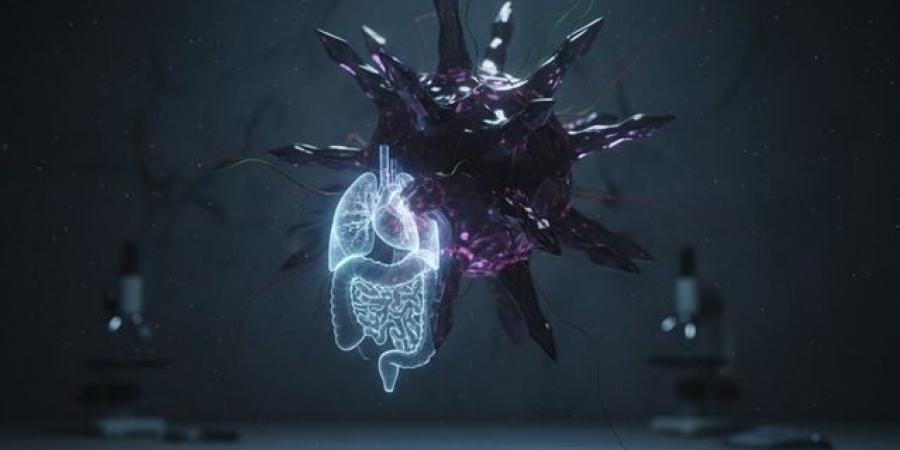نعرض لكم زوارنا أهم وأحدث الأخبار فى المقال الاتي:
6 Important Tips to Reduce the Risk of Developing Cancer - المصدر 7, اليوم الاثنين 17 نوفمبر 2025 12:21 مساءً
المصدر 7 - Cancer is one of the most challenging health conditions worldwide, but research shows that many types of cancer are strongly influenced by daily habits, lifestyle choices, and environmental exposure.
While no method can guarantee complete protection, you can significantly reduce your risk by adopting healthier behaviors that support your immune system, reduce inflammation, and limit exposure to harmful substances.
Here are six science-backed tips to help lower your cancer risk and promote long-term health.
1. Maintain a Healthy Weight and Reduce Belly Fat
Excess body fat — especially around the abdomen — increases the risk of several cancers, including breast, colon, pancreatic, liver, kidney, and uterine cancer.
Why weight matters:
Fat tissue produces hormones that trigger inflammation
Belly fat releases harmful chemicals into the bloodstream
Obesity creates chronic stress on cells
Insulin resistance increases cancer risk
How to reduce belly fat safely:
Walk at least 30 minutes daily
Eat more fiber (vegetables, oats, legumes)
Limit processed sugars
Prioritize lean proteins
Sleep 7–8 hours
Why this matters:
Maintaining a healthy weight reduces hormonal imbalance, inflammation, and cell damage — three major risk factors for cancer.
2. Eat an Anti-Inflammatory, Plant-Rich Diet
What you eat directly affects your cancer risk.
A diet high in antioxidants and nutrients helps protect your cells from DNA damage.
Foods that help reduce cancer risk:
Leafy greens (spinach, kale, arugula)
Berries (blueberries, strawberries)
Cruciferous vegetables (broccoli, cauliflower)
Tomatoes (rich in lycopene)
Whole grains
Fatty fish (salmon, sardines)
Turmeric + black pepper
Green tea
Foods to limit:
Processed meats (bacon, sausages)
Sugary foods
Fried foods
Excessive salt
Refined flour
Red meat (limit intake, don’t eliminate)
Why this works:
Plant-based foods contain antioxidants that protect cells from mutation.
Fiber improves gut health, reducing colon cancer risk.
Healthy fats help control inflammation.
This diet doesn’t just reduce cancer risk — it improves overall immunity, energy, and longevity.
3. Avoid Smoking and Limit Alcohol Intake
Smoking is linked to at least 15 types of cancer, including lung, mouth, throat, bladder, pancreas, and kidney cancer.
Why quitting matters immediately:
Within 20 minutes, blood pressure improves
Within a week, lung function begins to recover
Within months, inflammation drops
Long-term risk decreases dramatically
About alcohol:
Alcohol increases the risk of:
Breast cancer
Liver cancer
Esophageal cancer
Colon cancer
How alcohol increases risk:
Produces a toxic compound (acetaldehyde)
Damages DNA
Weakens the immune system
Promotes hormone imbalance
For the lowest cancer risk, limit alcohol to:
0–1 drink per day for women
0–2 drinks per day for men
Or avoid it entirely.
4. Protect Yourself From Harmful Sun Exposure
Skin cancer is one of the most common — and one of the most preventable — cancers.
UV exposure can cause:
DNA damage
Premature aging
Melanoma (most dangerous form)
Protect yourself wisely:
Use sunscreen SPF 30+
Reapply every 2 hours outdoors
Wear a hat and sunglasses
Avoid sun exposure between 11 AM and 4 PM
Never use tanning beds
Why sun protection matters:
UV radiation is a direct cause of cell mutation.
Simple protective habits can reduce skin cancer risk by up to 50%.
5. Reduce Exposure to Environmental Toxins
Many hidden everyday chemicals increase cancer risk over time.
Common sources of toxins:
Non-stick cookware (especially if scratched)
Air pollution
Chemical cleaning products
Artificial fragrances
Pesticides
Plastics heated in the microwave
Heavy metals in unfiltered water
How to reduce exposure:
Use stainless steel or cast-iron cookware
Ventilate your home daily
Choose natural cleaning products
Filter your drinking water
Store food in glass containers
Avoid burning candles with synthetic scents
Environmental toxins accumulate slowly — but their impact on DNA damage adds up over years.
6. Prioritize Regular Screenings and Early Detection
Even with a healthy lifestyle, screenings remain essential.
Important tests include:
Mammograms (breast cancer)
Colonoscopy (colon cancer)
Pap smear (cervical cancer)
PSA test (prostate cancer)
Skin examinations
Lung cancer screening for smokers
Why screenings matter:
Detect cancer in early, treatable stages
Prevent advanced disease
Save lives through early intervention
Regular checkups allow doctors to catch changes before they become serious.
???? Bonus: Lifestyle Habits That Strengthen Cancer Prevention
Sleep 7–9 hours a night
Reduce stress through meditation or walking
Stay physically active daily
Drink plenty of water
Limit processed food
Build strong social support
Cook at home more often
Maintain a healthy gut microbiome
Healthy habits support the immune system — your biggest defense against cancer.













0 تعليق